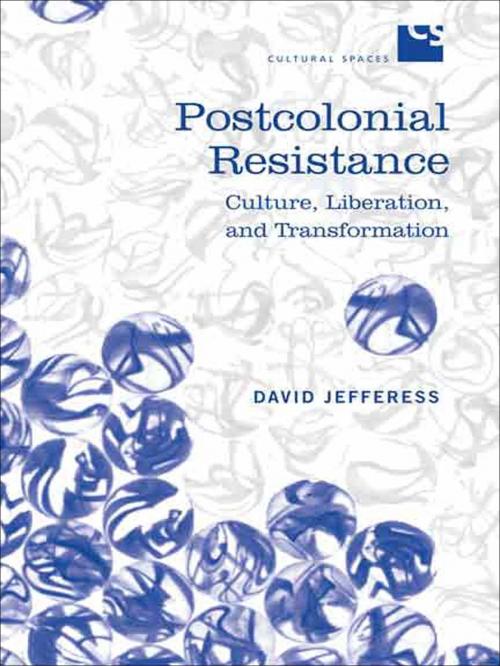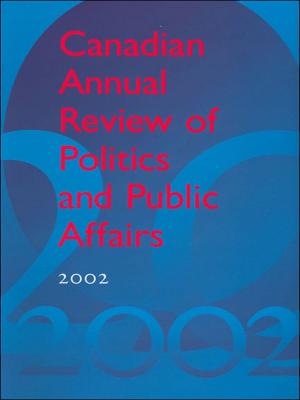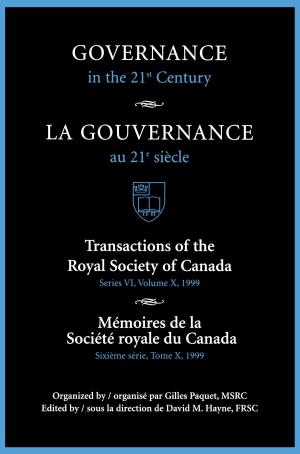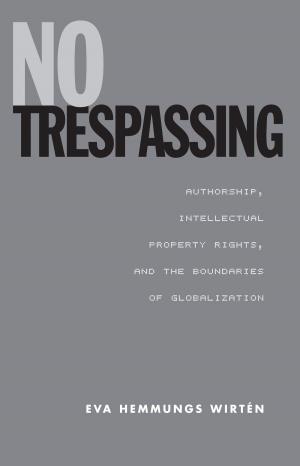Postcolonial Resistance
Culture, Liberation, and Transformation
Nonfiction, Social & Cultural Studies, Social Science, Anthropology| Author: | David Jefferess | ISBN: | 9781442691384 |
| Publisher: | University of Toronto Press, Scholarly Publishing Division | Publication: | May 24, 2008 |
| Imprint: | Language: | English |
| Author: | David Jefferess |
| ISBN: | 9781442691384 |
| Publisher: | University of Toronto Press, Scholarly Publishing Division |
| Publication: | May 24, 2008 |
| Imprint: | |
| Language: | English |
Despite being central to the project of postcolonialism, the concept of resistance has received only limited theoretical examination. Writers such as Frantz Fanon, Edward Said, and Homi K. Bhabha have explored instances of revolt, opposition, or subversion, but there has been insufficient critical analysis of the concept of resistance, particularly as it relates to liberation or social and cultural transformation. In Postcolonial Resistance, David Jefferess looks to redress this critical imbalance.
Jefferess argues that interpreting resistance, as these critics have done, as either acts of opposition or practices of subversion is insufficient. He discerns in the existing critical literature an alternate paradigm for postcolonial politics, and through close analyses of the work of Mohandas Gandhi and the South African reconciliation project, Postcolonial Resistance seeks to redefine resistance to reconnect an analysis of colonial discourse to material structures of colonial exploitation and inequality. Engaging works of postcolonial fiction, literary criticism, historiography, and cultural theory, Jefferess conceives of resistance and reconciliation as dependent upon the transformation of both the colonial subject and the antagonistic nature of colonial power. In doing so, he reframes postcolonial conceptions of resistance, violence, and liberation, thus inviting future scholarship in the field to reconsider past conceptualizations of political power and opposition to that power.
Despite being central to the project of postcolonialism, the concept of resistance has received only limited theoretical examination. Writers such as Frantz Fanon, Edward Said, and Homi K. Bhabha have explored instances of revolt, opposition, or subversion, but there has been insufficient critical analysis of the concept of resistance, particularly as it relates to liberation or social and cultural transformation. In Postcolonial Resistance, David Jefferess looks to redress this critical imbalance.
Jefferess argues that interpreting resistance, as these critics have done, as either acts of opposition or practices of subversion is insufficient. He discerns in the existing critical literature an alternate paradigm for postcolonial politics, and through close analyses of the work of Mohandas Gandhi and the South African reconciliation project, Postcolonial Resistance seeks to redefine resistance to reconnect an analysis of colonial discourse to material structures of colonial exploitation and inequality. Engaging works of postcolonial fiction, literary criticism, historiography, and cultural theory, Jefferess conceives of resistance and reconciliation as dependent upon the transformation of both the colonial subject and the antagonistic nature of colonial power. In doing so, he reframes postcolonial conceptions of resistance, violence, and liberation, thus inviting future scholarship in the field to reconsider past conceptualizations of political power and opposition to that power.















